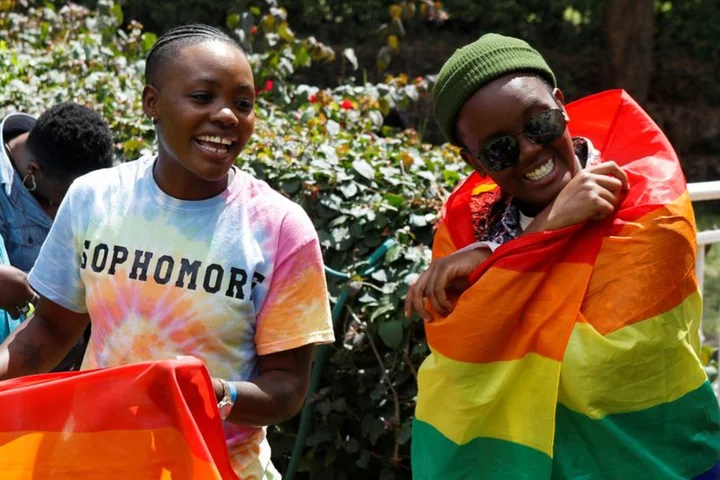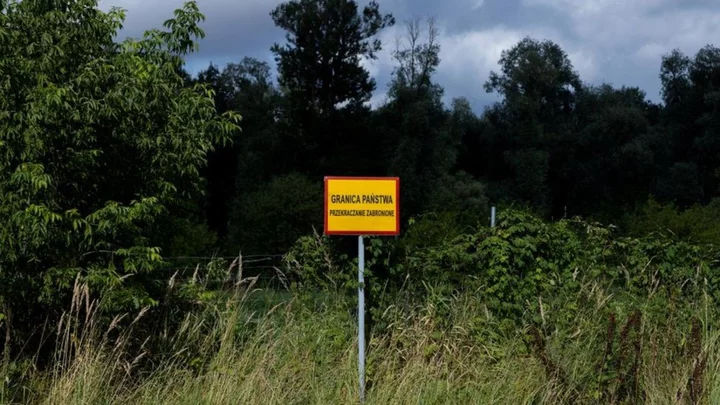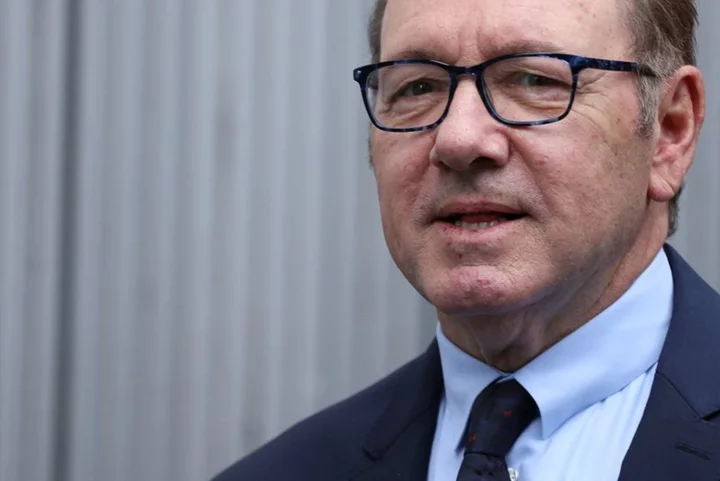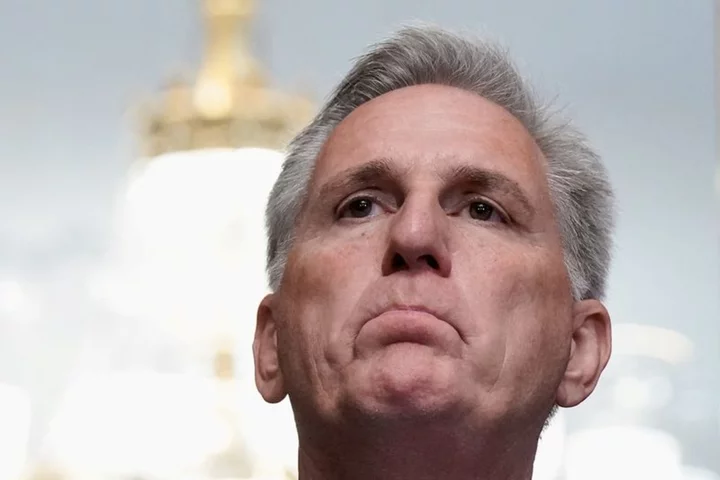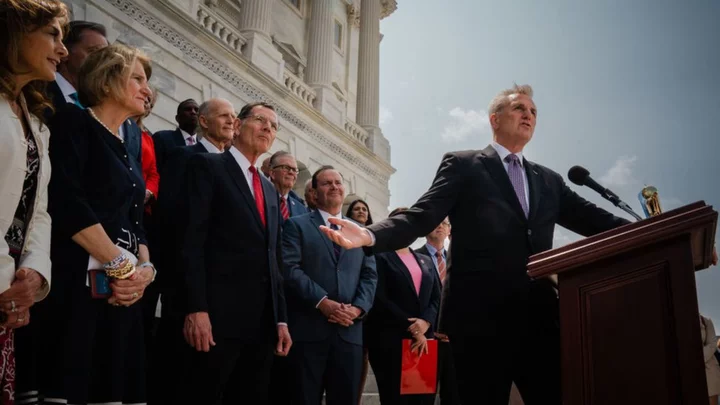By Ayenat Mersie and Mukelwa Hlatshwayo
NAIROBI (Reuters) -Mohamed Ali doesn't believe gay Africans exist. He says homosexuality is a Western invention imposed on the continent. Openly gay Africans are liars seeking visas to the West or money from rights groups, he adds.
Ali is a member of Kenya's parliament. He is desperate to follow neighbour Uganda by unleashing a sweeping legislative crackdown on LGBTQ people. Even if he happened to be sick in intensive care, he would ask to be dragged to parliament to approve it.
"I will ask them to take me to vote for that, to kick them out, kick LGBT people out of Kenya completely," he said.
Weeks after Uganda enacted one of the most draconian anti-LGBT laws on Earth, Kenya could be poised to follow suit with a similarly formulated bill that punishes gay sex with prison or even death in some cases, according to a draft of the law and two lawmakers backing it in parliament.
Similar moves are also afoot in Tanzania and South Sudan, parliamentarians in those nations told Reuters, revealing for the first time a broad anti-LGBT legislative drive across East Africa. Some regional lawmakers frame the issue as an almost existential battle to save African values and sovereignty, which they say have been battered by Western pressure to capitulate on gay rights.
The draft of Kenya's Family Protection Bill, seen by Reuters, mirrors many aspects of the Ugandan law, which was signed by President Yoweri Museveni at the end of May to the dismay of the LGBT community, human rights campaigners and Western capitals.
Gay sex is punishable by at least 10 years in jail under the proposed Kenyan law, while "aggravated homosexuality", which includes gay sex with a minor or disabled person or when a terminal disease is passed on, brings the death penalty.
"It is a hateful piece of legislation that will truly make the lives of queer Kenyans unbearable if passed," said Annette Atieno of the National Gay and Lesbian Human Rights Commission campaign group.
Spokespeople for the Kenyan presidency and government didn't respond to requests for comment about the proposed bill.
In South Sudan, parliamentary spokesperson John Agany told Reuters that an anti-LGBT law with the same content as the Ugandan legislation was being drafted and would be put to a vote "very soon". He didn't elaborate on the bill, and the Juba government didn't respond to a request for comment.
Meanwhile, Tanzanian lawmaker Jacqueline Ngonyani said she planned to introduce a private motion in parliament later this year to clamp down on gay activity in an attempt to "control the ongoing moral decay".
"If these (gay) people increase, this will be the end of generation," she added. "This is the same as drugs do to our youth."
Asked whether she had specific punishments in mind, Ngonyani said she would not share anything until she was advised by legal experts.
Tanzania's minister of constitutional and legal affairs, Damas Ndumbaro, said there was little room to tighten existing colonial-era laws against homosexuality, though.
"Do they want 100 years in prison while we already have a life sentence?" he told Reuters. "Let us review why the problem is persisting," he said, referring to gay activity. "The government is still collecting opinions on how to solve the problem."
'PROMOTING' HOMOSEXUALITY: 5 YEARS
The Kenyan anti-gay bill is being vetted by a parliamentary committee, which can then refer it to the full chamber for a vote. Officials have given no indication of the possible timeline.
The LGBT community fears the worst, three rights groups told Reuters.
In a debate in parliament initiated by Ali in March about whether to ban speech or publications that promote same-sex relations, more than 20 lawmakers spoke out against LGBT rights and none in support. Several called for legislation to strengthen penalties for same-sex acts, including the deputy majority leader, who said gay sex could be punished by hanging.
President William Ruto, an evangelical Christian, has criticized a February supreme court decision allowing an LGBT rights group to register as a non-governmental organization. "We cannot travel the road of women marrying their fellow women and men marrying their fellow men," he said at the time.
The proposed Kenyan law reflects a significant degree of agreement and coordination on anti-gay policies between lawmakers across the region, according to the draft of the bill as well as Reuters interviews with the Kenyan MPs and activists.
Several new crimes appear in both Uganda's law and the proposed Kenyan one, including the aggravated homosexuality offence, "promoting" homosexuality and allowing gay sex on your property, which affects landlords. The latter two carry prison terms of at least 10 and five years respectively, the draft shows.
The Kenyan bill's author, lawmaker Peter Kaluma, said the push to pass similar legislation to Uganda's was in part motivated by solidarity with its smaller neighbour, which has faced Western criticism over its law and seen the United States impose visa restrictions on some officials.
"Across the continent we want to have these laws," Kaluma added. "If they were to sanction Uganda, let them sanction the entirety of Africa."
He said the proposed law was influenced by discussions at a conference organized by Ugandan lawmakers in March in the city of Entebbe where he said parliamentarians from several African nations discussed strengthening anti-LGBT laws.
The conference, about African family values and sovereignty, was attended by around 80 lawmakers from 14 countries, according to a communique issued afterwards. Uganda was best represented, contributing over half of the delegates, followed by South Sudan.
The delegates called for action on issues ranging from the sexual exploitation of children to pornography. They urged nations to ban "transgender medical interventions" and make foreign donors pledge that none of their funding would go to "abortion, comprehensive sexuality education and/or the LGBTQ agenda".
The U.S. State Department didn't immediately respond to a request for comment on the conference or the East African legislative moves.
FEAR REIGNS AT NAIROBI PRIDE
The Kenyan bill would toughen up a colonial-era statute under which gay sex was already illegal, though the older, less detailed law was rarely enforced.
The proposed law would signal the death knell for Kenya's status as a place of relative refuge for gay people in East Africa as the only country in the region to host refugees fleeing persecution because they are LGBT.
The draft bill stipulates that no one should be granted asylum on grounds of persecution linked to sexual orientation.
Anticipation of the new legislation, and the anti-gay rhetoric in politics and the media from public figures such as Ali and Kaluma that has accompanied it, is already casting a chill over the LGBT community, according to organizers of the Pride event in Nairobi this month.
Stella Kachina, one of the organizers, said that unlike in previous years the location was not disclosed in advance out of fear that anti-gay activists would target the event. Instead, participants were picked up and brought to the venue.
Attendee Marylize Biubwa said the current climate was frightening for gay people. "Kenya as a country doesn't feel like home anymore," she said.
Both advocates and opponents of the Family Protection Bill say it has a good chance of becoming law, boosted by the enactment of the Ugandan law and well-organized and financed anti-LGBT political campaigners.
Lorna Dias, executive director of the Gay and Lesbian Coalition of Kenya, also cited last year's election of Ruto.
"The mere fact that we have a religious-leaning president who has openly declared his stand ... people have been emboldened by his religious proclamations," Dias said.
(Additional reporting by Nuzulack Dausen in Dar es Salaam, Waakhe Simon Wudu in Juba and Daphne Psaledakis in Washington; Writing by Estelle Shirbon; Editing by Aaron Ross and Pravin Char)

